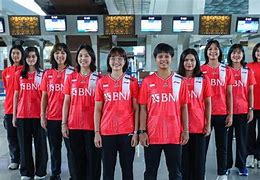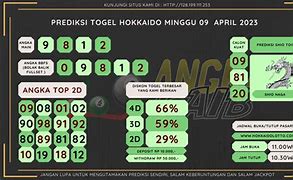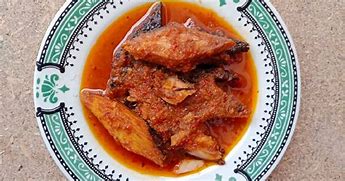
–2019: Rebuilding
Some weeks after finishing as runners-up in the 2016 AFF Championship, PSSI held a congress on 8 January 2017 in an effort to sign Spanish coach, Luis Milla to handle their senior and U-22 team. Prior to the 2018 AFF Championship, Milla departed without any explanation, causing anger among Indonesian supporters.[37] Indonesia crashed out from the group stage in the 2018 AFF Championship, which led to the sacking of Bima Sakti.[38] In order to prepare for the 2022 FIFA World Cup qualification campaign, Indonesia signed Scottish coach Simon McMenemy with hope that his successful tenure with the Philippines could reinvigorate Indonesia's performance especially when Indonesia was grouped with three Southeast Asian rivals Malaysia, Thailand and Vietnam alongside UAE.[39] Indonesia lost all four matches including a 2–3 home defeat to Malaysia despite having taken a 2–1 lead prior followed by a home loss to Vietnam for the first time in any competitive tournaments.[40][41] On 6 November 2019, PSSI decided to sack McMenemy over the national team's deteriorating performance.[42] Indonesia traveled to Malaysia and lost 0–2 to its rival and was officially eliminated from the 2022 FIFA World Cup qualification.[43]
–2016: Continental appearances
Indonesia's first appearance in the AFC Asian Cup was against United Arab Emirates in the 1996 AFC Asian Cup. During the tournament, Indonesia only scored a single point from a 2–2 draw against Kuwait in the first round.[19]
In the final group stage match of the 1998 Tiger Cup, Indonesia faced Thailand while the both teams already through to the semi-finals, but were also aware that the winner would have to face hosts Vietnam. Indonesia's Mursyid Effendi deliberately kicked the ball into Indonesia's own goal as Thailand's attacker ran towards the ball.[20] FIFA fined both teams $40,000 for "violating the spirit of the game" while Effendi was banned from international association football for a lifetime. Indonesia was rewarded with a match by the team they wanted to face; minnows Singapore (who they ironically lost 2–1 to) in the semi-finals.[21]
The team's second appearance in the Asian Cup was in Lebanon in the 2000 AFC Asian Cup; again, the Indonesian team gained only one point from three games, and again, from a match against Kuwait that finished without a score from either side. Indonesia established a higher record in the 2004 AFC Asian Cup, beating Qatar 2–1 to record the team's first-ever victory in the history of the tournament. The win was not enough for it to qualify for the second round, having fallen 0–5 to host China and 1–3 to Bahrain.
Indonesia then qualified for their third successful tournament in the 2004 AFC Asian Cup being grouped with China, Qatar, and Bahrain with them winning the only match against Qatar in a 2–1 victory but crashed out of the tournament with only three points.
The 2007 AFC Asian Cup saw Indonesia co-hosting the tournament with Malaysia, Thailand and Vietnam becoming the first time in the AFC Asian Cup history that four countries co-hosted the competition. In the opening match of the tournament, Indonesia faces Bahrain with goals coming from Budi Sudarsono and Bambang Pamungkas to secure a 2–1 win. However, in the following two matches, Indonesia suffered a 2–1 defeat to Saudi Arabia and narrowly losing to South Korea 1–0 which Indonesia failed to qualified to the knockout stage of the tournament.
Indonesia reached the finals of AFF Championship on six occasions (2000, 2002, 2004, 2010, 2016, and 2020), albeit never managing to lift the trophy victoriously. The team's claim of regional titles came in the Southeast Asian Games of 1987 and 1991.[22][23]
After the Peter Withe era, the inability to fulfill the ASEAN target has been cited as the reason for Indonesia's "revolving door" in terms of team managers. Over two years, Indonesia's manager changed from Kolev to local coach Benny Dollo who was in turn sacked in 2010. The head coach position was then held by Alfred Riedl who failed to lift any cups and in July 2011 was then replaced by Wim Rijsbergen.[24][25]
–1981, 1986–1987[]
–1991, 1992–1993[]
This variant of the emblem was worn by Indonesia during the 1996 Asian Cup.
Berikut daftar negara peserta ajang bulutangkis Badminton Asia Team Championships atau BATC 2024.
www.SportCorner.id – Indonesia akan tampil dengan full team, sedangkan tim putri Korea Selatan bakal absen di Badminton Asia Team Championships atau BATC 2024.
Badminton Asia baru-baru ini telah mengumumkan daftar peserta yang akan berpartisipasi di ajang bulutangkis BATC 2024.
BATC 2024 sendiri bakal berlangsung pada 13-18 Februari 2024 di Alam Shah, Selangor, Malaysia.
Turnamen kontinental ini akan diikuti oleh 26 peserta dari berbagai negara di Asia.
Yakni terdiri dari 15 tim putra dan 11 tim putri yang akan ikut serta.
Baca juga: Skuad India di BATC 2024, Ada PV Sindhu dan Turunkan Tim Penuh Bintang
Sayangnya tidak semua negara bakal tampil komplit mengirimkan tim putra dan putrinya.
Contohnya saja negara unggulan seperti Korea Selatan hanya akan menurunkan tim putra saja di BATC 2024.
Menurut informasi yang beredar dari kalangan Badminton Lovers, ada sejumlah alasan mengapa tim putri Korea Selatan tidak berpartisipasi.
Yakni karena rata-rata kondisi pemain belum 1000 persen fit. Contohnya saja An Se-young yang baru saja pulih dari cedera.
Selain itu mereka juga dipersiapkan untuk fokus menunju Olimpiade Paris 2024 mendatang.
Selain Korea Selatan, ada tiga tim lainnya yang tidak menurunkan tim lengkap di Badminton Asia Team Championships 2024.
Men's association football team
The Indonesia national football team (Indonesian: Tim nasional sepak bola Indonesia) represents Indonesia in international men's football matches since 1945. The men's national team is controlled by the Football Association of Indonesia (PSSI), the governing body for football in Indonesia, which is a part of AFC, under the jurisdiction of FIFA. Most of Indonesia home matches are played at the Gelora Bung Karno Stadium.
The team is colloquially referred to as Pasukan Garuda (Garuda Warriors) or Merah Putih (The Red and White), after the country's national emblem and their distinctive red-and-white jerseys based on the country's flag. Their fan club is known as La Grande Indonesia and Ultras Garuda.[6]
Indonesia was the first team from Asia to participate in the FIFA World Cup. The predecessor of the team, Dutch East Indies, was participated in the 1938 edition, where they were eliminated in the first round.[7][8] The team's only appearance at the Olympics was in 1956. Indonesia qualified for the AFC Asian Cup on five occasions, and advanced to the knockout stage for the first time in the 2023 tournament, exiting in the round of 16.[10] Indonesia achieved the bronze medal at the 1958 Asian Games in Tokyo. The team appeared in the ASEAN Championship final six times. They finished runners-up on all six occasions. Indonesia has long-standing football rivalries with neighbours Malaysia, Thailand and Vietnam.
–1945: Asia's first FIFA World Cup participant
Dutch East Indies made its FIFA World Cup debut during the 1938 edition in France. The team advanced to the final round without playing any qualifying matches. Japan, who were drawn in Group 12 of the qualifying round with the Dutch East Indies, decided to withdraw from the competition. The Dutch East Indies were then ordered by FIFA to carry out a play-off match against one of the Group 11 participants, the United States. The match was scheduled to be played on 29 May 1938, but never took place after the United States also decided to withdraw from the competition. This allowed the Dutch East Indies to advance to the final round as the Asia's first World Cup participant.[15][8]
In the final round, the Dutch East Indies were coached by Johan Mastenbroek who also served as chairman of the Dutch East Indies Football Association (NIVU). The team consisted of 17 players and was captained by a local Indonesian, Achmad Nawir. In the competition which still used the knockout format, the Dutch East Indies were eliminated in the first round when they were defeated by Hungary 0–6. This match took place on 5 June 1938 at the Stade Municipal, Reims. At the end of the competition, Hungary who had previously eliminated the Dutch East Indies, became the runner-up of the competition after being defeated by Italy 2–4 in the final.[16]
–1984: Independence era
After the Second World War, followed by the Indonesian Revolution in 1947, the national team no longer used the name Dutch East Indies and replacing it with the name Indonesia. The previous national football organization, the Dutch East Indies Football Union (NIVU) was succeeded by the Football Association of Indonesia (PSSI). The team's first official match under the name Indonesia was on 5 March 1951 at the Asian Games, where they lost 0–3 by the host nation India at the National Stadium, New Delhi.[17]
Indonesia qualified for the 1956 Olympics in Melbourne. The team advanced directly to the quarter-finals of the tournament after the withdrawal of their first-round opponents, South Vietnam. In the quarter-finals, the team met the Soviet Union who had previously defeated the United Team of Germany 2–1. The match was held on 29 November 1956, where Indonesia forced the Soviet Union to a goalless draw. This resulted the match being replayed two days later where the team lost 0–4.
In 1957, Indonesia dominated the qualifying round of the 1958 FIFA World Cup. The team defeated China in the first round, then subsequently refused to play its next opponents, Israel, for political reasons. Indonesian player Rusli Ramang became the top scorer at the end of the competition with 4 goals.
Indonesia won the bronze medal at the 1958 Asian Games where the team beat India 4–1 in the third-place match. The team also drew 2–2 with East Germany in a friendly match. Indonesia won Merdeka Tournament trophy on three occasions (1961, 1962 and 1969). The team were also champions of the 1968 King's Cup. Indonesia returned to World Cup qualification rounds in 1974 as the team was eliminated in the first round, with only one win from six matches, against New Zealand. During the qualification round of 1978 FIFA World Cup, Indonesia won a single of four matches, against the host team, Singapore. Four years later, in 1982, Indonesia won two FIFA World Cup qualifying matches, over Chinese Taipei and Australia.
The 1986 FIFA World Cup qualification round saw Indonesia advance from the first round with four wins, one draw, and one loss, eventually finishing at the top of its group. South Korea emerged victorious over Indonesia in the second round. The team reached the semi-final of the 1986 Asian Games after beating the United Arab Emirates in the quarter-finals. Indonesia then lost to host South Korea in the semi-finals and lost to Kuwait in the bronze medal match.[18]
A milestone during this era was the gold medal victory at the Southeast Asian Games in both 1987 and 1991. In 1987, Indonesia beat Malaysia 1–0; while in 1991, it beat Thailand in a penalty shoot-out. In the 1990 FIFA World Cup qualifiers, the Indonesian team lost in the first round, with only one win against Hong Kong, three draws and two defeats. The team also only managed a single victory against Vietnam in the 1994 FIFA World Cup qualification round.
Southeast Asian Games
More wins Wins equal losses More losses
Links to related articles
Indonesia achievements and awards
Indonesia – FIFA World Cup squads
Indonesia – Summer Olympics squads
Indonesia – AFC Asian Cup squads
Pilih Opsi Bank Hanya Bank Hanya Dompet Digital Bank dan Dompet Digital
Professional team of Bizlink includes its partners and nearly forty other lawyers and consultants working full-time for the firm at the two offices. Coupled with that, Bizlink retains collaborationship with a large number of part-time consultants, experts, scientists and retired government officials for their helpful involvement in jobs and assignments whenever the context requires.
Original file (5,092 × 5,906 pixels, file size: 4.28 MB, MIME type: image/png)
2024 Indonesia Football National Team Badge, own work based on 2024 Indonesia National Team Jersey (Garuda Pancasila made by
Any of the following acts are not considered Copyright infringement:
العربية ∙ Basa Bali ∙ English ∙ Bahasa Indonesia ∙ 日本語 ∙ Jawa ∙ Minangkabau ∙ Bahaso Melayu Jambi ∙ македонски ∙ Bahasa Melayu ∙ português ∙ русский ∙ Sunda ∙ 简体中文 ∙ 繁體中文 ∙ +/−
I, the copyright holder of this work, hereby publish it under the following license:
2024 Indonesia Football National Team Badge
Click on a date/time to view the file as it appeared at that time.
The following 13 pages use this file:
The following other wikis use this file:
This file contains additional information, probably added from the digital camera or scanner used to create or digitize it.
If the file has been modified from its original state, some details may not fully reflect the modified file.
Ukuran asli (5.092 × 5.906 piksel, ukuran berkas: 4,28 MB, tipe MIME: image/png)
Berkas ini berasal dari Wikimedia Commons dan mungkin digunakan oleh proyek-proyek lain. Deskripsi dari halaman deskripsinya ditunjukkan di bawah ini.
2024 Indonesia Football National Team Badge, own work based on 2024 Indonesia National Team Jersey (Garuda Pancasila made by
Perbuatan yang tidak dianggap sebagai pelanggaran Hak Cipta meliputi:
العربية ∙ Basa Bali ∙ English ∙ Bahasa Indonesia ∙ 日本語 ∙ Jawa ∙ Minangkabau ∙ Bahaso Melayu Jambi ∙ македонски ∙ Bahasa Melayu ∙ português ∙ русский ∙ Sunda ∙ 简体中文 ∙ 繁體中文 ∙ +/−
Saya, pemilik hak cipta dari karya ini, dengan ini menerbitkan berkas ini di bawah ketentuan berikut:
Add a one-line explanation of what this file represents
2024 Indonesia Football National Team Badge
Klik pada tanggal/waktu untuk melihat berkas ini pada saat tersebut.
7 halaman berikut menggunakan berkas ini:
–2016: Suspensions
In March 2012, PSSI received a warning for the divided state of Indonesian football, whereby two separate leagues existed: the rebel Indonesia Super League (ISL), which isn't recognized by PSSI or FIFA, and the Indonesia Premier League (IPL). The National Sports Committee (KONI) encouraged PSSI to work collaboratively with Indonesian Football Savior Committee (KPSI) officials to rectify the situation but KONI chairman Tono Suratman stated in March 2012 that KONI would take over the beleaguered PSSI if matters are not improved.[26] FIFA did not state whether Indonesia would face suspension, but on 20 March 2012, FIFA made an announcement. In the lead-up to 20 March 2012, PSSI struggled to resolve the situation and looked to its annual congress for a final solution.[27] PSSI was given until 15 June 2012 to settle the issues at stake, notably the control of the breakaway league; failing this, the case was to be referred to the FIFA Emergency Committee for suspension.[28] FIFA eventually set a new 1 December 2012 deadline. In the two weeks preceding the deadline, three out of four PSSI representatives withdrew from the joint committee, citing frustrations in dealing with KPSI representatives. However, FIFA stated that it would only issue a punishment to Indonesian football after the Indonesian national squad finished its involvement in the 2012 AFF Championship.[29]
In 2013, the president of PSSI Djohar Arifin Husin signed a Memorandum of understanding (MoU) with La Nyalla Matalitti (KPSI-PSSI) that was initiated by FIFA and the AFC through the Asian Football Confederation's Task Force. Since then, the control of Indonesia Super League was taken by the Joint committee to remain manageable by PT Liga Indonesia until the establishment of a new professional competition by the committee.[30] This means the Indonesian players from ISL were able to play and join the national team. The PSSI called players from both football leagues, ISL and IPL to fortify the national team for the Asian Cup qualifier of 2015. On 7 January 2013, PSSI announced a list of 51 players from both sides of football leagues regardless of whether players from the breakaway Indonesia Super League (ISL) would make an appearance, allegedly ISL clubs were reluctant to release players because they doubted Djohar's leadership.[31]
On 18 March 2013, PSSI held a congress at Kuala Lumpur, Malaysia. Both parties, PSSI and KPSI (breakaway group) solved their differences in four contentious points; such as; Reunification of two leagues; Revision of the PSSI Statutes; Reinstatement of the four expelled PSSI Executive Committee members La Nyalla Mattalitti, Roberto Rouw, Erwin Dwi Budiawan, and Toni Apriliani; and agreement of all parties to the Memorandum of Understanding from 7 June 2012 on the list of delegates to the PSSI Congress based on the list of the Solo Congress of July 2011. The new PSSI called 58 players from both sides leagues (ISL and IPL) for the national squad. Rahmad Darmawan returned as the caretaker coach of the national team with Jacksen F. Tiago as the assistant coach. They trimmed the 58 players initially called for national training to 28. The list would then be trimmed again to just 23 players for the Saudi Arabia match. Victor Igbonefo, Greg Nwokolo and Sergio van Dijk the three naturalised players were on the final list.[32] On 23 March 2013, Indonesia was defeated 1–2 by Saudi Arabia at home. Boaz Solossa gave Indonesia the first goal in their campaign for AFC Asian Cup qualification; the home team started with the goal in the sixth minute but the Saudi Side fought back with the equalizer from Yahya Al-Shehri in the 14th minute before Yousef Al-Salem the scored what turned out to be the winner on 56th minute.[33]
In 2015, Football Association of Indonesia (PSSI) was suspended by FIFA due to government interference in the domestic competition. The announcement was made on 30 May 2015 and had an immediate impact on the national team. Indonesia would not be eligible to compete in the next round of qualifiers for the 2018 World Cup and 2019 Asian Cup, starting less than two weeks later. FIFA took action against Indonesia following a row between the local government and the football association which has resulted in the cancellation of the domestic competition.[34] The suspension was lifted at the 66th FIFA Congress.[35] By then, hurried perpetration was done for Indonesia in order to get in touch for the upcoming 2016 AFF Championship where Indonesia eventually reached the final and once again fell to Thailand in process.[36]
Penggunaan berkas global
Wiki lain berikut menggunakan berkas ini:
Berkas ini mengandung informasi tambahan yang mungkin ditambahkan oleh kamera digital atau pemindai yang digunakan untuk membuat atau mendigitalisasi berkas. Jika berkas ini telah mengalami modifikasi, rincian yang ada mungkin tidak secara penuh merefleksikan informasi dari gambar yang sudah dimodifikasi ini.



